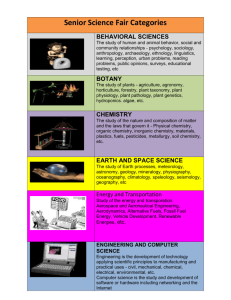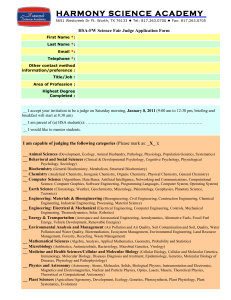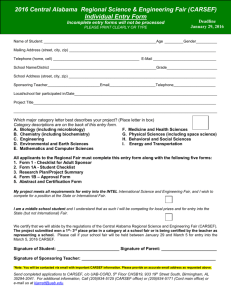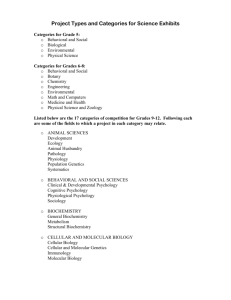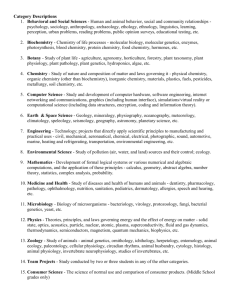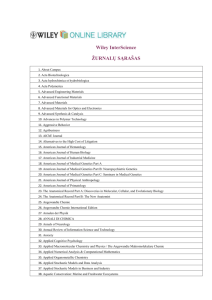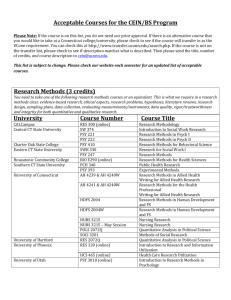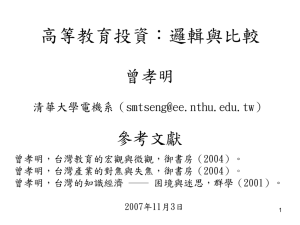Category Descriptions
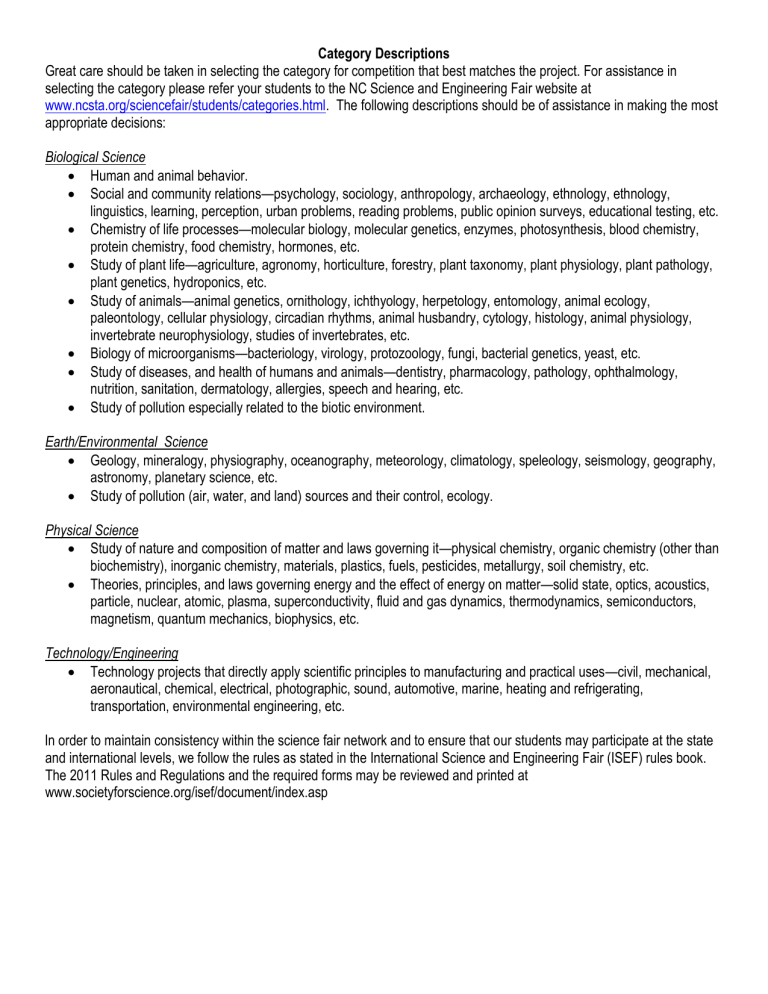
Category Descriptions
Great care should be taken in selecting the category for competition that best matches the project. For assistance in selecting the category please refer your students to the NC Science and Engineering Fair website at www.ncsta.org/sciencefair/students/categories.html
. The following descriptions should be of assistance in making the most appropriate decisions:
Biological Science
Human and animal behavior.
Social and community relations—psychology, sociology, anthropology, archaeology, ethnology, ethnology, linguistics, learning, perception, urban problems, reading problems, public opinion surveys, educational testing, etc.
Chemistry of life processes—molecular biology, molecular genetics, enzymes, photosynthesis, blood chemistry, protein chemistry, food chemistry, hormones, etc.
Study of plant life—agriculture, agronomy, horticulture, forestry, plant taxonomy, plant physiology, plant pathology, plant genetics, hydroponics, etc.
Study of animals—animal genetics, ornithology, ichthyology, herpetology, entomology, animal ecology, paleontology, cellular physiology, circadian rhythms, animal husbandry, cytology, histology, animal physiology, invertebrate neurophysiology, studies of invertebrates, etc.
Biology of microorganisms—bacteriology, virology, protozoology, fungi, bacterial genetics, yeast, etc.
Study of diseases, and health of humans and animals—dentistry, pharmacology, pathology, ophthalmology, nutrition, sanitation, dermatology, allergies, speech and hearing, etc.
Study of pollution especially related to the biotic environment.
Earth/Environmental Science
Geology, mineralogy, physiography, oceanography, meteorology, climatology, speleology, seismology, geography, astronomy, planetary science, etc.
Study of pollution (air, water, and land) sources and their control, ecology.
Physical Science
Study of nature and composition of matter and laws governing it—physical chemistry, organic chemistry (other than biochemistry), inorganic chemistry, materials, plastics, fuels, pesticides, metallurgy, soil chemistry, etc.
Theories, principles, and laws governing energy and the effect of energy on matter—solid state, optics, acoustics, particle, nuclear, atomic, plasma, superconductivity, fluid and gas dynamics, thermodynamics, semiconductors, magnetism, quantum mechanics, biophysics, etc.
Technology/Engineering
Technology projects that directly apply scientific principles to manufacturing and practical uses—civil, mechanical, aeronautical, chemical, electrical, photographic, sound, automotive, marine, heating and refrigerating, transportation, environmental engineering, etc.
In order to maintain consistency within the science fair network and to ensure that our students may participate at the state and international levels, we follow the rules as stated in the International Science and Engineering Fair (ISEF) rules book.
The 2011 Rules and Regulations and the required forms may be reviewed and printed at www.societyforscience.org/isef/document/index.asp
